We caught up with the brilliant and insightful Jon Vertullo a few weeks ago and have shared our conversation below.
Jon, appreciate you joining us today. When did you first know you wanted to pursue a creative/artistic path professionally?
Whenever anyone asked me as a kid, “What do you want to be when you grow up?” I never knew how to answer. I knew I wanted to be a Jedi, a wizard, or maybe a Jedi/wizard combo. I also knew that I liked performing with my sister in the Walpole Children’s Theatre plays throughout the year, but acting wasn’t a real job, right?
As I got a little older, “What do you want to be when you grow up” became, “What do you want to major in and do for a job?” Aside from opening automatic doors at the grocery store with a wave of my hand, it seemed the force wasn’t with me, so being a Jedi was off the table. Unless Hogwarts lost my letter, so was being a wizard. Thanks to highly supportive parents, acting was still on the table, though.
I grew up in Massachusetts where Emerson College is the obvious choice to learn acting at a liberal arts school, so I applied there and received an invitation to audition for their theatre program.
If you’ve never experienced a college theater audition, let me tell you, they are terrifying.
The intensity and desperation of all of the prospective students were palpable. It seemed to me like everyone in the room was willing to gouge out their own eyes (or maybe even mine) if it meant they could get into the program. To be clear, no one actually threatened my eyesight, but I could almost hear the Jaws theme any time another student so much as breathed in my direction.
After an increasingly uncomfortable wait in the proverbial piranha tank, I auditioned for one of the professors who seemed understandably exhausted and frankly a bit disinterested and went on my way.
On my ride back from the audition, I quietly decided that if crazed desperation was what it took to be an actor, I should just move on. I didn’t seem to outwardly want this career as badly as those other students, so I assumed professional acting just wasn’t for me.
Thankfully, my mom found a summer class at a local high school that taught video editing. I didn’t know anything about filmmaking, but it seemed close enough to the acting world that I could still enjoy it.
When I realized that my fun little trailer for the editing class evoked the exact emotional response I was hoping for from an audience when I acted, I was all in on this newfound professional path. Working in film and video production felt more attainable as a career than this vague notion of acting for money.
I attended Elon University in North Carolina with a major in Film and TV and a minor in Theatre (old habits die hard, I guess). I had a blast learning about film technology and found myself working at the school’s video equipment rental house. I was even in charge of my own department, teaching students how to use specialized camera equipment. The deeper I dove into camera work, the less I found myself performing, but at the time, I didn’t seem to mind.
After graduating from Elon, I landed what I thought was my dream job at one of the world’s top film equipment rental companies.
Yet, five years later, I realized something wasn’t quite right. I was helping camera crews work on some of the biggest blockbuster films in the world, but I wasn’t happy.
My girlfriend (now wife) noticed the change in my demeanor. In an attempt to find something we could do together to cheer me up, she suggested we audition for a play at a local church.
I was hesitant. After all, it had been almost nine years since I had performed in anything at that point. I decided my girlfriend was right, and we both auditioned for and were cast in the production.
The play was a complete and utter disaster! My wife and I still laugh about how bad it was to this day, but something important happened to me during that production: I realized that even the worst day performing was still better than my best day at the rental house.
After that play, a new direction for my life slowly started to materialize. I sought other auditions, and as I began booking projects, I realized that some of these shows were willing to pay. This was completely foreign to me; I began to realize that, in between the mega-celebrities and the starving artists existed a middle ground: the working actor. Suddenly, the prospect of being a professional actor seemed much more attainable.
I finally found my perfect niche in acting in a padded room when I attended Atlanta Voiceover Studio’s Intro to Voice Acting workshop (again at the encouragement of my wife, who met one of the studio owners while working on set). Voice acting was this magical blend of performance and technical knowledge, two things I thoroughly enjoyed.
Even better, voice acting lives by the tenant of ‘there is a place for every voice’. The atmosphere was more inclusive and welcoming than that shark tank of students I’d found myself in several years prior, which made me realize an important lesson beyond the simple foundations of voice acting:
I didn’t have to be (and shouldn’t be) desperate to be a professional actor. I just needed to take a measured approach to improving my craft, building my business, and maintaining financial discipline. Continuing to do those three things (along with the support from my incredible wife and family), has allowed me to become a full-time professional actor. No magic or midichlorians needed.

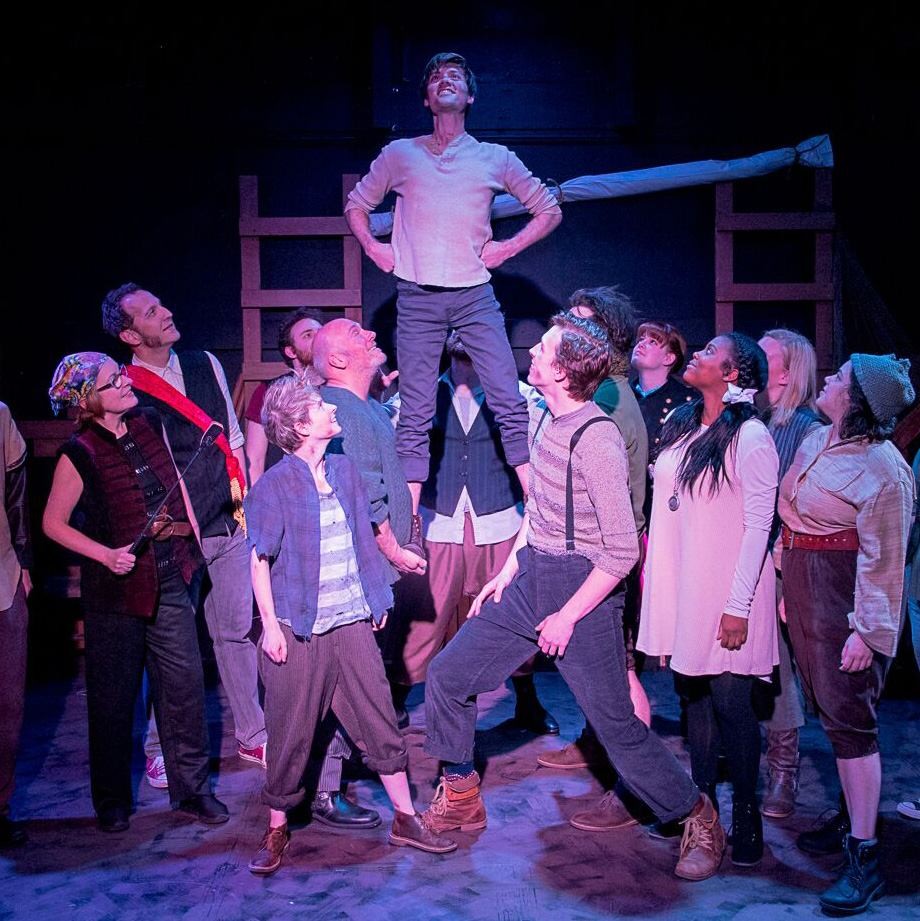
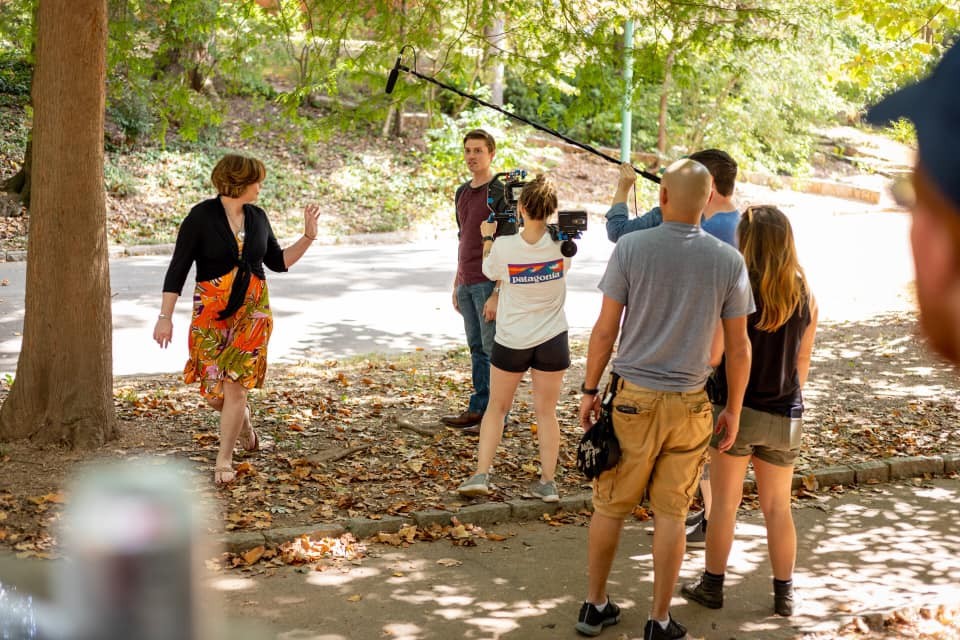
As always, we appreciate you sharing your insights and we’ve got a few more questions for you, but before we get to all of that can you take a minute to introduce yourself and give our readers some of your back background and context?
Hi, there! My name is Jon Vertullo, and I’m a professional voiceover and on-camera actor. I specialize in providing directors of animation and video games with deeply developed character performances, businesses with an engaging voice to reach their customers, and authors with a narrator that can bring their carefully crafted words to life.
One of the biggest challenges my clients face is that the world of voiceover has changed dramatically since the onset of Covid-19. Pre-pandemic, directors and producers would hire talent and send them to a recording studio with an audio engineer on staff to ensure the session went smoothly.
Now though, directors need their voice actors to not only provide top-notch performances, but also run their own sessions from home studios to deliver the highest quality recordings matching any specifications requested. This is where I can provide an extra degree of comfort to my clients due to my technical background.
Before I became a full-time actor, I worked in film and television production for almost a decade. I also work part-time as an audio engineer at Atlanta Voiceover Studio, so my technical background and broadcast-quality home studio help me accommodate even the most demanding recording specifications.
My clients know that when they hire me, they are not only going to get authentic and believable characters, but also the troubleshooting expertise of someone who has had to think on the fly to solve technical issues under tight deadlines.
I pride myself on delivering the highest quality professional performances on stage, screen, or mic with a positive, directable, and easy-to-work-with attitude.
Is there something you think non-creatives will struggle to understand about your journey as a creative? Maybe you can provide some insight – you never know who might benefit from the enlightenment.
One of the aspects of my journey and chosen profession that non-creatives (and even some creatives) struggle to understand is that becoming a successful working actor takes deliberate planning. I didn’t just wake up one day, quit my job, declare myself an actor, and suddenly become flooded with opportunities to earn a living by performing.
Often, the story of the “overnight success” in any career (not just performing), while sensational, can create a misleading narrative. For the record, I am not an overnight success.
When I realized that I wanted to transition out of my full-time job and into acting as a career, I knew I needed to do two things: discuss this with my wife and make a plan.
After discussing with and receiving immense support from my wife, the first step in our plan was to allocate a portion of income toward exploring what a career as a performer would look like.
There are several things that money went toward funding. First on the list was finding reputable classes taught by currently-working actors and coaches to build the skills and support network I would need to produce competitive auditions.
Additionally, I began spending what free time I could (while still maintaining my full-time job) seeking out new resources on everything from trends in casting to new recording technology to get myself up to speed with industry standards.
While continuing my training, I pinched my pennies and slowly saved up money for my home studio, new headshots, and a website. Eventually, I completed my studio with equipment that was far from the top of the line but could produce satisfactory results for clients.
After even more training, I began to audition for and book small voiceover and on-camera jobs. When my coaches felt I was ready, I recorded a professional demo to market to agents. All the while, I still maintained my full-time job and used whatever vacation days, nights, or weekend time I could to squeeze in acting gigs.
At this point, I had a good routine with my coaches, had competitive materials, and was beginning to book with increasing regularity. It was tempting to say I had done enough to quit my job, but I resisted the urge. After all, a short-term trend of regular bookings only sometimes translates to long-term success.
Through all of my training, I had learned that success as a performer could come in waves; an actor can have weeks or months of consistent bookings only to experience a total booking drought not long after that. Instead of assuming I was on a good path and could make the leap to full-time, I knew that I needed to create a financial safety net.
My wife and I created this financial safety net by looking at all our bills and figuring out how much we would need to cover six months’ worth of expenses.
Completing the six-month safety net was the most difficult part for me personally. It was tormenting to feel completely ready to make acting my career and yet know that it was tantalizingly out of reach until we met our financial goals.
In the end, wisdom (and my wife’s patience) won the day, and I was able to confidently give my two weeks’ notice at my old job after we met our financial goals.
So no, I didn’t just wake up one day and decide to be an actor. Instead, I discussed my goals with my wife, made a plan, gained the necessary knowledge and skills, and steadily worked toward success.
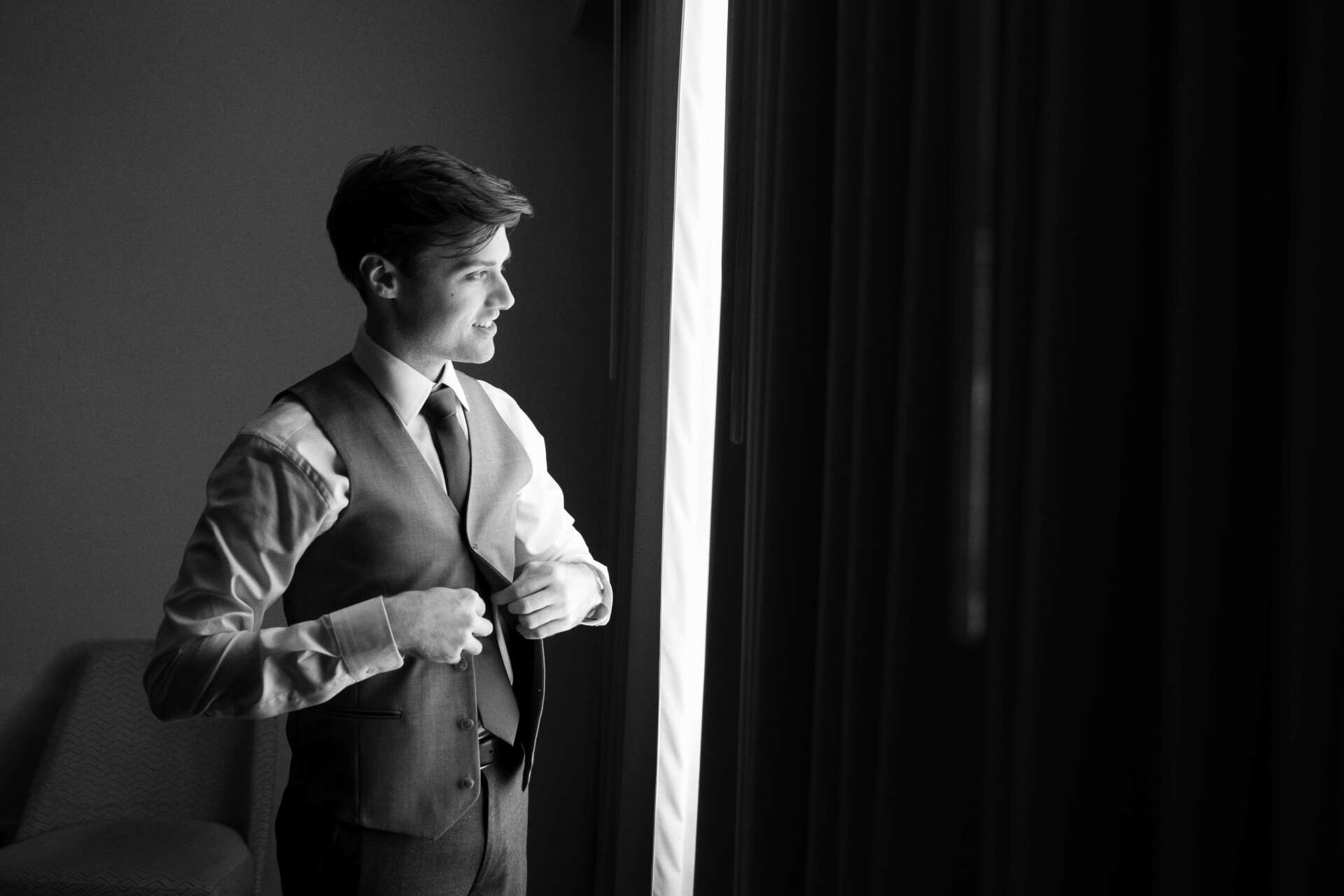
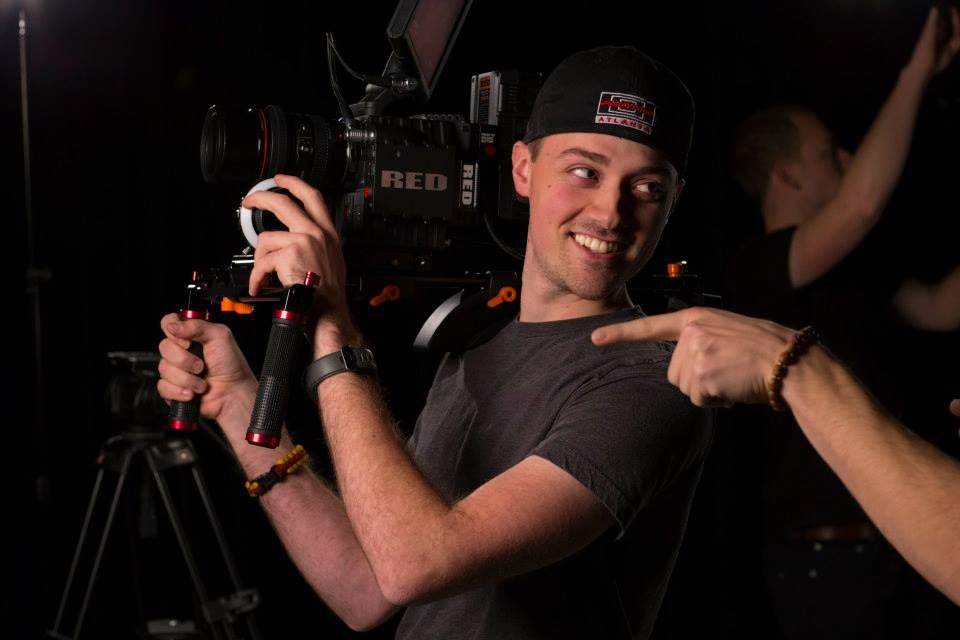
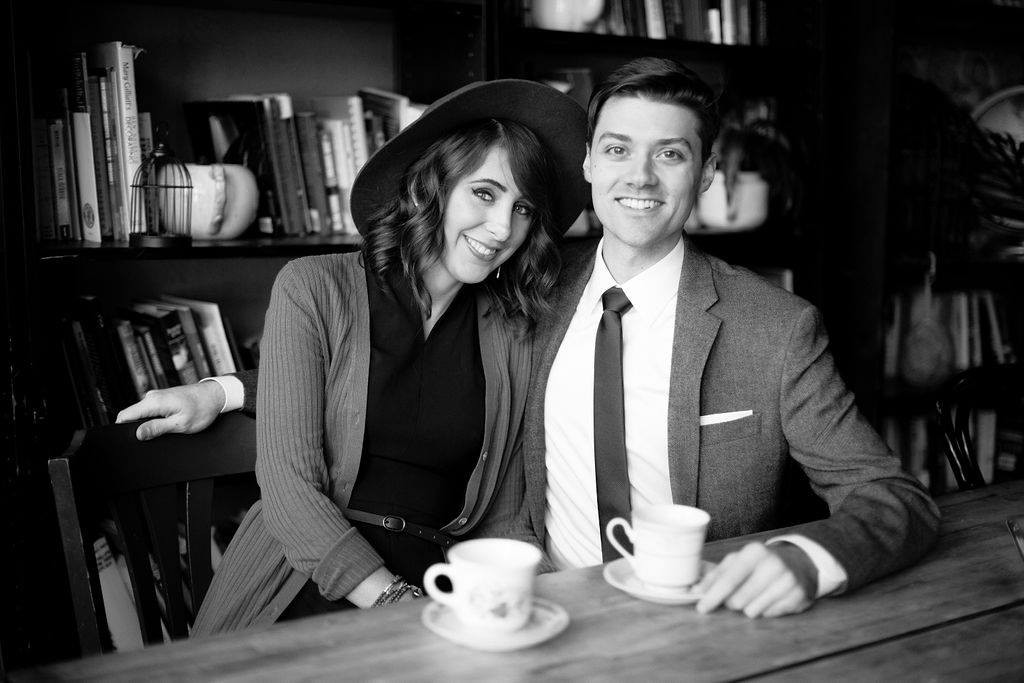
In your view, what can society to do to best support artists, creatives and a thriving creative ecosystem?
One of the key steps that we can take as a society to support artists is to stop putting celebrity actors and artists on a pedestal.
Suppose creative careers shift from being viewed as a quick way to fame and fortune and more towards a skilled trade. It would do a lot to help normalize thinking of any professional artistic pursuit as a business requiring entrepreneurial skills rather than one that will get someone famous.
By doing this, society can begin normalizing creative jobs and careers, which would ultimately help create an environment where artists could do more than survive but actually thrive as a whole instead of a small percentage of professional creatives earning a livable wage.
Contact Info:
- Website: www.jonvertullo.com
- Linkedin: https://www.linkedin.com/in/jon-vertullo-1aa09068
- Other: http://imdb.me/Jonvertullo https://www.graphicaudio.net/credits/search/result/?credits_starring=Jon%20Vertullo https://www.audible.com/search?searchNarrator=Jon+Vertullo&ref=a_search_c3_lNarrator_1_1_9&pf_rd_p=83218cca-c308-412f-bfcf-90198b687a2f&pf_rd_r=1MHZ1C8AJMXAYJZGN6P9


